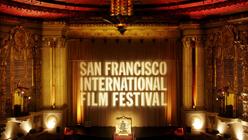Every year our beloved San Francisco International gets to call itself the longest running film festival in the Americas, and all it ever must do to maintain that claim is continue to exist. That’s easier said than done nowadays, with myriad cable channels and online streaming services, let alone the other very crowded film festivals, offering an essentially infinite all-you-can-eat buffet of motion picture experiences.
This year’s SFIFF, number 56 and the first since prolific indie movie producer Ted Hope assumed leadership of the San Francisco Film Society, takes nothing for granted. For instance, its State of Cinema address will be delivered by Steven Soderbergh, fresh from announcing that he’s now retired from making films. (Chroniclers of allegedly dead or dying art forms may enjoy knowing that Soderbergh’s main reason for giving up movies is that he wants to do more painting.) As for the general and pressing question of what’s in it for you, one answer seems to be this festival’s active interest in transmuting past shared cultures into future ones.

Invasion of the Body Snatchers
So the usual cornucopia of panels, seminars, tributes, and awards this year includes a directing award for local filmmaker Philip Kaufman, whose 1978 take on Invasion of the Body Snatchers, one of the greatest San Francisco movies of all time, will get a big-screen showing at the Castro. The robust crop of films with Bay Area ties also includes a batch of newly restored, refreshingly old-fashioned works by the rightly revered late documentarian Les Blank, who died from cancer in his Berkeley home earlier this month. Festival opener What Maisie Knew, an attentive little-girl’s-eye view of her parents’ divorce, from former locals Scott McGehee and David Siegel, loosely updates a novel by Henry James. Big Sur, from Michael Polish, lyrically adapts a novel by Jack Kerouac, and tests the durability of the Beat mystique.
More studies of past meeting future — in content and in form — may be found within the festival’s unique, once-only events. Local archivist Rick Prelinger’s audience-interactive home-movies collage, No More Road Trips?, wonders if we’ve reached “peak travel,” and whether localism, for all its benefits, has overtaken the American tradition of nomadism.




